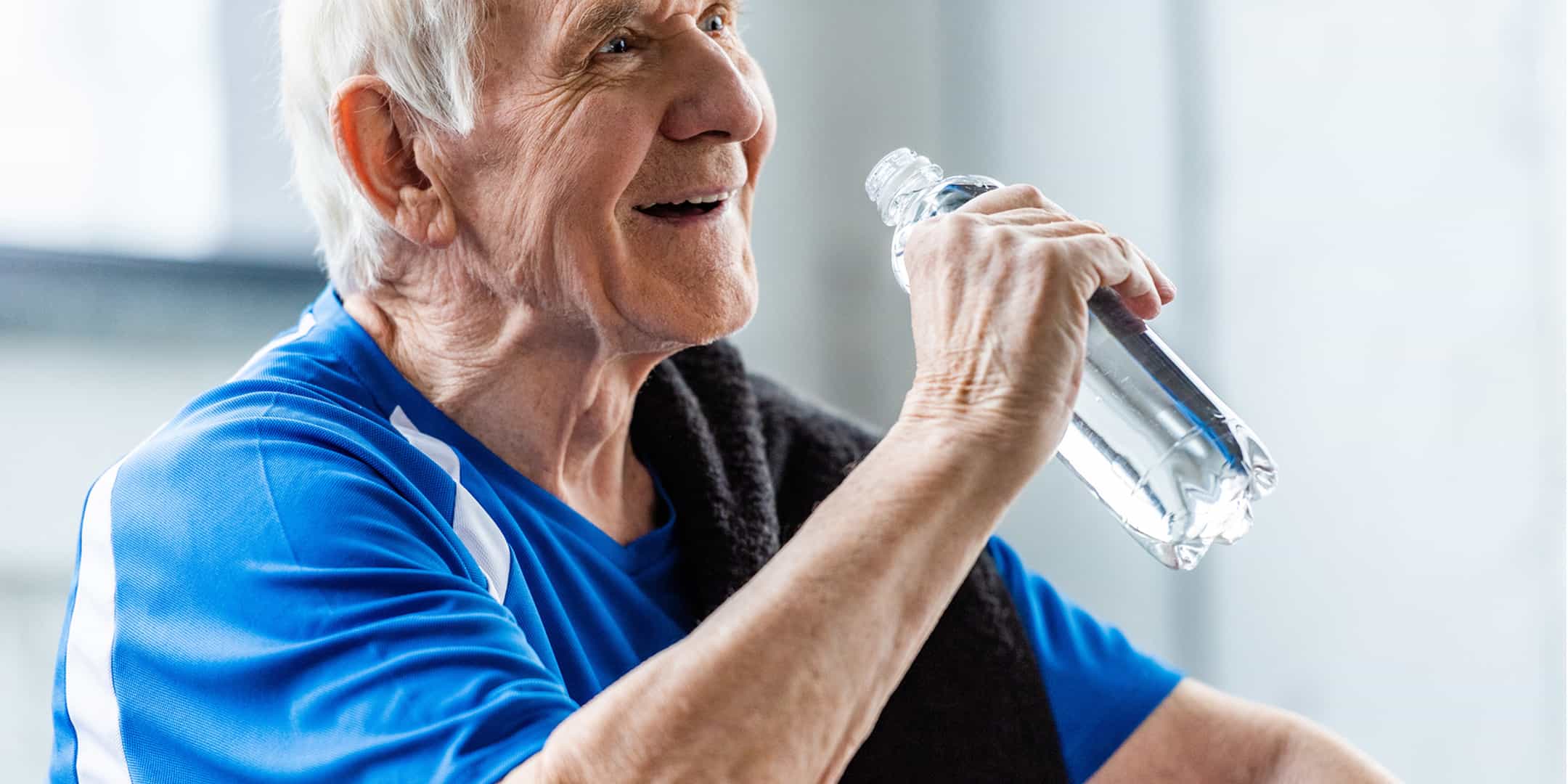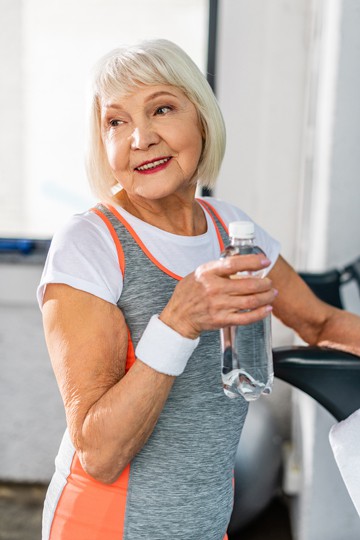 Does an “old people smell” really exist? Or is that term just another untrue stereotype about seniors? The answer isn’t entirely straightforward. Although scientists have discovered that older people experience physiological changes that can lead to a distinct scent, that smell isn’t necessarily as unpleasant as the term often implies. And it’s usually not the result of poor hygiene or housekeeping. Fortunately, there are many things you can do to minimize its causes if the smell bothers you.
Does an “old people smell” really exist? Or is that term just another untrue stereotype about seniors? The answer isn’t entirely straightforward. Although scientists have discovered that older people experience physiological changes that can lead to a distinct scent, that smell isn’t necessarily as unpleasant as the term often implies. And it’s usually not the result of poor hygiene or housekeeping. Fortunately, there are many things you can do to minimize its causes if the smell bothers you.
This article will teach you why people’s natural scent can change with age. You’ll also learn tips for preventing the distinctive odor. And you’ll find out why you shouldn’t panic if you notice that your body smells different than it used to. Plus, you’ll discover other factors that can influence a senior’s scent and get tips on how to talk to a loved one about body odor.
This article contains affiliate links. We are compensated with a small commission, at no extra cost to you, for sales made through the links.
Why Do People Smell Different as They Get Older?
If you notice a distinctive smell in the assisted living facilities or nursing homes you visit, you might wonder why. Do old people smell different as they age? The answer is often yes. But the cause of the scent usually isn’t poor hygiene or health issues. Rather, it’s the result of the normal skin-aging process. The substance that causes it is called nonenal. (Pronunciation of this word is with a short “e”; it sounds a bit like “phenomenal”.) So if you’ve ever asked, “What is ‘old people smell’ and what causes it?” you should start by learning about nonenal and why it becomes a concern with age.
Nonenal production occurs naturally. Throughout your life, your skin produces omega-7 fatty acids. When these natural oils break down on your skin, the result is a strong-smelling chemical called 2-nonenal.
Until your senior years, your body produces enough antioxidants to slow down this oxidation process. But as aging skin weakens, two things happen: You produce fewer antioxidants, and, at the same time, you make more fatty acids. The result? More 2-nonenal and more of its distinct odor. Your body odor changes as you get older because of this change in body chemistry.
Is Nonenal a Bad Thing?
Nobody likes to think that they might have “old lady smell” or “old man smell.” And knowing that your new smell is the result of growing older can be a double blow. But nonenal odor is nothing to be ashamed of. It’s a normal part of the aging process.
Consider the potential purpose of the scent caused by nonenal. One theory suggests that, from an evolutionary standpoint, mating with older individuals makes sense since their superior genes have helped them live a long time. That could be why some animals are attracted to older partners. In other words, an age-related scent might be one way of letting others know you have good genes.
Admittedly, that might seem like a problematic attitude to adopt given the way society as a whole now views aging. But the important point is this: Smelling “like an old person” isn’t necessarily bad. After all, your body odor changes throughout the course of your life. (Think of the difference between a newborn baby and a teenage boy.) The scent of the senior years is just one more phase in that process.
And the scent itself may not be unpleasant. Rather, it might be the association with old age that makes people want to avoid it. In one study, participants were asked to rate the smell of materials that had been exposed to various people’s armpits, without knowing how old those people were. Although the scent of the seniors in the study was the most easily recognized, it wasn’t rated as the most unpleasant.
The study’s authors speculate that the scent likely would have been rated as less pleasant if participants had known the scent was from the oldest age group. That’s because knowing the origin of an odor has a noted effect on how we perceive it. In other words, our reaction to nonenal odor might be tied to our feelings about aging in general.
How Can I Prevent Nonenal Odor?

Nonenal odor removal can be challenging. One reason is that nonenal is not water-soluble. That means a quick shower won’t easily rinse it off. And most soaps are designed to tackle dirt or sweat, but not nonenal.
Some skincare and hygiene items have been marketed as nonenal soap or nonenal body wash in recent years. Many of these products were developed in Japan, where the word for the smell of a senior is “kareishuu.” According to Japanese researchers, persimmon extract is effective at eliminating nonenal. As a result, many of the products that claim to get rid of nonenal contain persimmon.
In addition to using nonenal soap, lifestyle changes can help. The goal of these changes is to reduce stress (which can increase the production of nonenal) and keep skin and clothing clean. Check out these strategies that can help get rid of nonenal:
- Drink lots of water. (When you’re dehydrated, your skin can become drier, so any substance your body produces will be more concentrated.) An insulated water bottle can help you keep track of how much you’re drinking and make sure you’re getting enough hydration.
- Wear cotton clothing so that your skin can breathe easily. Something basic like this t-shirt for women or this one for men works well under clothing or worn on its own.
- Ensure that clothing and bedding are washed regularly.
- Avoid clothing made of synthetic materials.
- Bathe or shower regularly.
- Moisturize after bathing or showering. Moisturizers with vitamin C and other antioxidant ingredients can protect your skin.
- Let the air flow. (Some seniors live in environments that don’t have optimum air circulation, leading to a musty smell.) Try to keep windows open when possible. A good air purifier with a HEPA filter can also help, particularly in areas or seasons where having the windows open isn’t an option.
- Eat a healthy diet. Some people think that eating plenty of antioxidant-rich fruits and vegetables while reducing meat and alcohol consumption helps control nonenal production.
- Consider stress-relieving activities like yoga or meditation.
When to Worry: Tips for Seniors and Caregivers
Nonenal isn’t the only thing that can cause changes in how we smell. Other factors, such as medications, laundry problems, and dietary changes can also impact an older person’s body odor.
Although some changes are normal, a different body odor can sometimes be a sign of a medical problem. For example:
- A fruity smell on a person’s breath can signal diabetes.
- Breath that smells like ammonia can be a sign of kidney disease.
- Changes in scent that result from neglecting basic personal hygiene can sometimes indicate the beginnings of dementia.
Medical researchers are working to discover clearer connections between the scent of a person and their health. Although cancer doesn’t change your body odor in a way that a normal sense of smell can detect, medical scientists are developing an electronic nose that can detect some cancers in blood samples. Scientists have even made progress in teaching dogs to recognize the smell of certain kinds of cancer.
So, since changes in body odor can indicate health issues, don’t hesitate to seek help from a healthcare professional when you have concerns. If you know a senior whose body odor is getting stronger, and you feel it goes beyond expected age-related changes, suggest a doctor’s visit. And if you’re worried about your own smell, start by asking someone you trust for his or her opinion. (We are often our own worst critic when it comes to our own scent.)
If you’re a relative or caregiver of a senior who has body odor, try to be patient. The older person may not even be aware of it. After all, our sense of smell declines with age. He or she might also avoid showering or bathing because of concerns about falling. And some seniors figure that since they’re no longer very active, they don’t have to shower as much as they used to. Mental health issues can also be a factor. (Some older people suffering from depression no longer care very much about basic hygiene.)
Conversations about self-care can be awkward. However, remember to respect the dignity of the senior in your life. Emphasize that changes in body odor are normal. And if you’re able, offer to assist with things like doing laundry or fall-proofing a shower.
For many seniors, the possibility of developing “old person smell” can be distressing. But understanding the underlying causes can help ease any stigma they feel. And a few simple steps can reduce the development of age-related body odor. With a positive and proactive approach, worrying about how you smell doesn’t have to interfere with living a fulfilling life as a senior.

